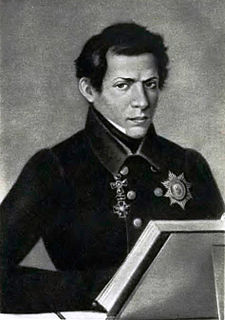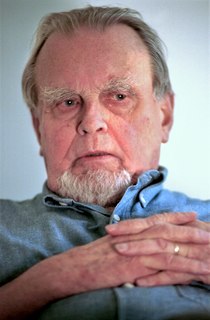A Quote by Albert Einstein
Consider the concepts referred to in the words 'where', 'when', 'why', 'being', to the elucidation of which innumerable volumes of philosophy have been devoted. We fare no better in our speculations than a fish which should strive to become clear as to what is water.
Related Quotes
When I consider the narrow limits within which our active and inquiring faculties are confined; when I see how all our energies are wasted in providing for mere necessities, which again have no further end than to prolong a wretched existence; and then that all our satisfaction concerning certain subjects of investigation ends in nothing better than a passive resignation... when I consider all this... I am silent.
I think that a lot of things are hard to read if you're not in the vocabulary flow of that particular discourse. I sometimes forget that even though the words I'm using are fairly ordinary words, the concepts around which they cluster, which are the long concepts of literary tradition, may not be familiar to an audience.
The natives of British Columbia live largely upon the fish which abound in their seas and rivers. If the fish do not come in due season, and the Indians are hungry, A Nootka wizard will make an image of a swimming fish and put it into the water in the direction from which the fish generally appear. This ceremony, accompanied by a prayer to the fish to come, will cause them to arrive at once.
In geometry I find certain imperfections which I hold to be the reason why this science, apart from transition into analytics, can as yet make no advance from that state in which it came to us from Euclid.
As belonging to these imperfections, I consider the obscurity in the fundamental concepts of the geometrical magnitudes and in the manner and method of representing the measuring of these magnitudes, and finally the momentous gap in the theory of parallels, to fill which all efforts of mathematicians have so far been in vain.
The Roman Catholic Church has the unique power of keeping remote control over human souls which have once been part of her. G.K. Chesterton has compared this to the fisherman's line, which allows the fish the illusion of free play in the water and yet has him by the hook; in his own time the fisherman by a 'twitch upon the thread' draws the fish to land.
What strikes me is the fact that in our society, art has become something which is related only to objects and not to individuals, or to life. That art is something which is specialized or which is done by experts who are artists. But couldn't everyone's life become a work of art? Why should the lamp or the house be an art object, but not our life?
It cannot but affect our philosophy favorably to be reminded of these shoals of migratory fishes, of salmon, shad, alewives, marsh-bankers, and others, which penetrate up the innumerable rivers of our coast in the spring, even to the interior lakes, their scales gleaming in the sun; and again, of the fry which in still greater numbers wend their way downward to the sea.
The breakdown of Plato's philosophy is made apparent in the fact that he could not trust to gradual improvements in education to bring about a better society which should then improve education, and so on indefinitely. Correct education could not come into existence until an ideal state existed, and after that education would be devoted simply to its conservation. For the existence of this state he was obliged to trust to some happy accident by which philosophic wisdom should happen to coincide with possession of ruling power in the state.
The process could be likened to relaxing on a riverbank and watching a fish leap out of the water, sparkle for a moment in the sunlight, then dive back in a graceful arc. There is no need to engage in a mental dialogue about the merits and demerits of the fish, emotionally react to the fish, or jump into the water to try to catch the fish. Once the fish is out of sight, it should also be out of mind.





































